9-11 December 2025
Muscat, Oman
No posts
27-28 October 2025 - Singapore


Venue: IME A*STAR – MPH 1 and 2 (Multi-Purpose Hall)
Fusionopolis Two, Innovis, Level 1, MPH 4 Fusionopolis Way Singapore 138635
08:15 – 08:55
Registration
09:00 – 09:20
Keynote
MEMS leadership in turbulent times
The MEMS industry is living in turbulent times. Geopolitical tensions, tariffs and regulatory changes are causing us to rethink our supply chains, to meet changing customer needs and to deal with unforeseen shortages in strategic materials, used in our sensors. The rapid adoption of AI opens opportunities in many areas of our business from product development over manufacturing to integration of AI enabled features in our sensors.
To successfully lead through these turbulent times requires resilience through in-house manufacturing, strong partnerships and a mindset of relentless innovation. The speech will highlight how these attributes are the key ingredients of ST’s ongoing success in MEMS.

Anton Hofmeister
STMicroelectronics
Anton Hofmeister is Group Vice President and General Manager of R&D in ST’s Analog, Power & Discrete, MEMS & Sensors Group. He is also Managing Director of ST’s German subsidiary since 2016.
Hofmeister joined Thomson Semiconductors (a predecessor company to STMicroelectronics) as a marketing engineer in 1986. He subsequently held management positions in product marketing, key account management and corporate strategic marketing. In 1997, Hofmeister was appointed Director of a System R&D team in San Diego, USA, and became subsequently Director of the Print Head Business Unit. In 2005, he was appointed General Manager of the Microfluidics Division and has broadened his responsibility with the MEMS Microactuator Division in 2015, managing the MEMS business for a variety of applications in Consumer Electronics, Automotive, Industrial, and Medical markets.
Hofmeister has served as a board member of the Singapore-based Molecular Diagnostics company Veredus Laboratories. He is currently a member of the Governing Council of the MEMS&Sensor Industry Group (MSIG) at SEMI and a board member of the European Association on Smart Systems Integration (EPoSS).
Anton Hofmeister was born in Munich and graduated with a Master’s degree in Engineering from the University of Munich.
Company Profile
At ST, we are more than 50,000 creators and makers of semiconductor technologies mastering the semiconductor supply chain with state-of-the-art manufacturing facilities. An integrated device manufacturer, we work with more than 200,000 customers and thousands of partners to design and build products, solutions, and ecosystems that address their challenges and opportunities, and the need to support a more sustainable world. Our technologies enable smarter mobility, more efficient power and energy management, and the wide-scale deployment of cloud-connected autonomous things. We are committed to achieving our goal to become carbon neutral on scope 1 and 2 and partially scope 3 by 2027. Further information can be found at www.st.com.

09:25 – 09:45
The Future of MEMS – Pathways for Innovation and Collaboration
MEMS technology provides miniaturization, precision, and scalability, while quantum technologies introduce superposition, entanglement, and unprecedented sensitivity. The convergence of these fields enables hybrid quantum–MEMS systems with transformative potential. European quantum pilot lines offer fertile ground for accelerating such innovation, but strong cooperation across disciplines will be essential to fully realize their promise. Early demonstrations, such as quantum sensing for next-generation GPS and pathways toward chip-scale entanglement, highlight how these technologies can unlock novel device functionalities. Exploring this synergy will define new frontiers for MEMS and shape the future of quantum-enabled applications.
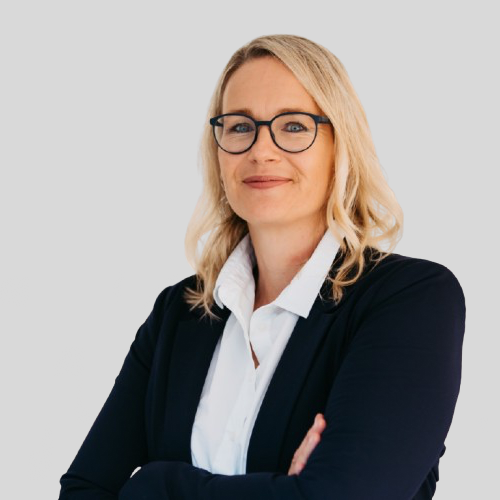
Christina Hirschl, Ph.D.
Silicon Austria Labs (SAL)
Christina Hirschl, PhD in physics, has extensive expertise in R&D and in building and leading large teams in applied research. Her career is driven by enabling innovation, digitalization, and new business opportunities through cross-industry collaboration. Since June 2023, she has been CEO of Silicon Austria Labs GmbH, after managing the Villach site and heading the Sensor Systems Division. She combines scientific expertise with strong leadership to drive growth and international collaboration.
Company Profile
Silicon Austria Labs (SAL) has been founded to be a top European research center for electronic-based systems. In the network of science and economy, we carry out research at a global level and create the basis of groundbreaking products and processes.

09:50 – 10:10
Building a MEMS and Optoelectronics Platform to Enable Technological and Industrial Innovation
R&D pilot platforms are essential for advancing MEMS and silicon photonics, providing the foundation for transforming research breakthroughs into manufacturable technologies. SITRI has built China’s first open 8-inch “More-than Moore” platform dedicated to MEMS and silicon photonics development. It supports the entire innovation chain from design and process development to pilot production, mass production, testing and packaging—enabling rapid prototyping and industrial scaling. SITRI also fosters an innovation ecosystem that connects industry, academia, and research. Through joint development projects, shared facilities, and incubation programs, it accelerates technology transfer and the commercialization of emerging microsystems. By combining strong process capabilities with collaborative innovation, SITRI has become a key enabler of industrial transformation in MEMS and silicon photonics, strengthening the foundation for next-generation intelligent sensing and optical interconnection technologies.
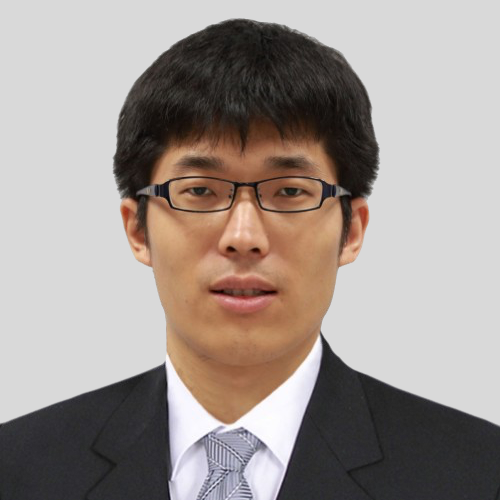
Wei Wang, Ph.D.
Shanghai Industrial Technology Research Institute (SITRI)
Wang Wei, PhD from the Institute of Semiconductors, Chinese Academy of Sciences, is a Shanghai High-Level Talent, Director of Silicon Photonics at SITRI, and chief scientist of National Key R&D Program projects. With over 15 years of experience in R&D of silicon-based optoelectronic materials and devices, he has published more than 80 papers in top international conferences and journals in this field, and holds over 30 authorized national invention patents. As a project/topic leader, he has led a number of national key and major projects, and spearheaded the construction of SITRI’s silicon photonics process platform and the company’s external wafer foundry services.
汪巍,中国科学院半导体所博士,上海市高层次人才,上海工研院硅光总监,国家重点研发计划项目首席,从事硅基光电子材料和器件研发超过15年,在该领域顶级国际会议和期刊发表论文80余篇,授权国家发明专利30余项,作为项目/课题负责人牵头多项国家重点重大项目,主导完成工研院硅光工艺平台建设及公司对外流片服务。
Company Profile
Shanghai Micro-Technology Industrial Research Institute (SITRI) was established in 2013 by Shanghai Science and Technology Commission, Jiading District Government and Shanghai Institute of Microsystem and Information Technology, Chinese Academy of Sciences. It is a R&D and transformation functional platform integrating R&D, engineering, industrialization and cultivation, providing in-depth process technology support and services for innovative enterprises and partners. SITRI was established under the guidance of Shanghai Lianhe Investment Co., Ltd.’s strategic mission of serving the national strategy and being a pioneer in scientific and technological development. It relies on the “three-in-one” innovation architecture model of Shanghai Institute of Microsystem and Information Technology, Chinese Academy of Sciences. With the support of the technical strength of Shanghai Institute of Microsystem and the investment and operation model of Shanghai Xinwei Technology Group, it has established close cooperative relations with many domestic and foreign production, learning and research organizations, realized the efficient industrialization of innovative achievements, and accelerated the establishment of the “More than Moore” industrial ecosystem.
· SITRI has the first 8-inch “More than Moore” R&D pilot line in China, providing “More than Moore” core process technologies such as MEMS, silicon photonics, and biochips, and providing efficient R&D, pilot and verification services for semiconductor companies such as design, equipment and materials, realizing seamless connection from R&D to small batch production.
· Up to now, SITRI has applied for 877 patents, 697 invention patents, including 56 PCT (international patent) patents. · SITRI is based in Shanghai, facing the Yangtze River Delta, and radiating across the country, and has initially formed an industrial ecosystem in the field of “More Than Moore”.
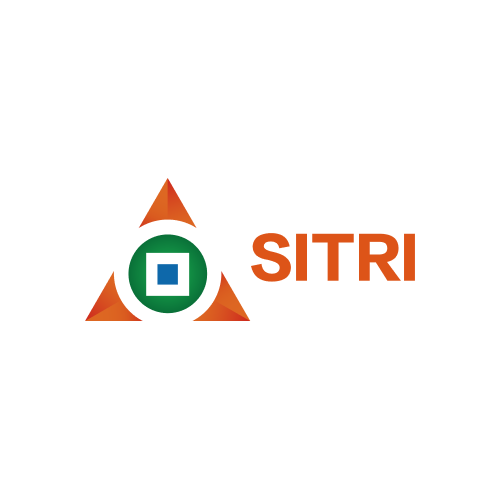
10:15 – 10:35
A new MEMS manufacturing paradigm – democratized fabrication
Accelerating innovation in MEMS devices requires the establishment of a new manufacturing paradigm that democratizes access to microfabrication. In an ever-more interconnected world powered by IoT sensors and actuators, new application-specific technologies are rapidly emerging with unique fabrication requirements. Traditional manufacturing approaches create significant barriers to entry, limiting innovation to well-funded organizations. InchFab has developed a modular fabrication platform that breaks down these barriers, enabling rapid prototyping and production of custom MEMS devices. This democratized approach to MEMS fabrication accelerates device development cycles and empowers a broader community of innovators to bring their microscale ideas to life, ushering in a new era of accessible microfabrication innovation.

Mitchell Hsing, Ph.D.
InchFab
Mitchell Hsing is the Co-Founder and CEO of InchFab, a company pioneering a new MEMS manufacturing paradigm that delivers low-cost, fast-cycle-time fab solutions for sensors and actuators. As an innovator at heart, Mitchell’s aim is to lower the barriers of entry to microfabrication and enable more people to innovate on the microscale. Mitchell holds S.M. and Ph.D. degrees in Electrical Engineering from MIT and B.S. degrees in Physics and Electrical Engineering from the University of California, Irvine.
Company Profile
InchFab pioneered Application Specific Fabs for the new era of chips, delivering the world’s only drop-in, ready-to-use modular fabrication lines with as short as 6-month delivery lead times. These $1-10M agile fabs enable state-of-the-art wafer processing at a fraction of traditional $1B+ costs. The company provides complete solutions including turnkey process flows, comprehensive education courses, and foundry services. By combining low CapEx, scalable throughput, and a proprietary process library, InchFab democratizes semiconductor manufacturing for workforce development, rapid prototyping, and production across specialized chips, non-IC devices, and localized supply chains.RetryM
Company Products & Services
Application Specific Fabs

10:40 – 11:00
MEMS-CMOS Integration: Process Innovation Enabling the Future Experiences
This talk highlights Silterra’s CMOS-MEMS integration platforms and scalable manufacturing driving the next generation of intelligent microsystems. Material breakthroughs like Aluminum Scandium Nitride (AlScN) enable high-performance piezoelectric MEMS for CMOS-PMUT integrated devices, while Silterra’s MOEMS integrated platform pushes boundaries by seamlessly combining mechanical, optical, and electronic components into manufacturable systems, including micromirrors and other MEMS solutions. Application examples, such as ultrasound imaging in healthcare and smart headlamps (ADB) in automotive, show how these advances move from research to real-world applications, paving the way for smarter, safer, and more connected user experiences.

Timothy Lee
SilTerra
Timothy Lee is Senior Director of Business Development at SilTerra Malaysia, a leading semiconductor foundry providing wafer fabrication services. With over 30 years of experience in the semiconductor industry, he now leads initiatives in MEMS Sensors, PiezoMEMS, Optical MEMS, and Microfluidics with expertise in sales, strategic marketing, technology commercialization into end applications, and customer engagement, driving innovation from proof-of-concept to high-volume production.
Throughout the years, he has also developed businesses and overseen projects in CMOS, BCD, GaN and PowerMOS. Previously at Fujitsu Microelectronics Asia, he led application engineering, technical marketing, and strategic marketing, driving strategies in MCU, ASIC, SoC, and Memory across China, Taiwan, and Southeast Asia markets
Company Profile
SilTerra, a pure-play wafer foundry, offers various CMOS technologies from 180nm to 110nm nodes. It serves a wide range of end-market applications, including IoT, power management, consumer electronics, medical and communication products. Besides CMOS technologies, SilTerra also provides MEMS foundry services, unique and patented MEMS-on-CMOS technologies, silicon photonics, bio-photonics, and power. Its excellent customer service team helps customers realize working prototypes from proof of concept to high volume manufacturing.

11:05 – 11:25
Seamless MEMS-CMOS Integration Enabled by TSRI’s Design and Service Platform
Implementing MEMS sensors and actuators by using CMOS foundry processes is attractive because of the high fabrication accuracy and good reliability. More attractively, the possibility of monolithic integration of MEMS components and interface/control circuitry enables the realization of complete micro systems on a chip. Leveraging the strength of the semiconductor industry in Taiwan, Taiwan Semiconductor Research Institute (TSRI) has been bridging the academia and industry in semiconductor/MEMS design and fabrication. In this talk, I will present a number of CMOS-MEMS sensors, actuators, and computing devices enabled by TSRI’s Design and Service Platform. Their recent initiative to foster international collaboration will also be introduced.

Yi Chiu, Ph.D.
National Yang Ming Chiao Tung University
Yi Chiu received the B.S. degree in Electrical Engineering from National Taiwan University, Taiwan, ROC, in 1988, and the M.S. and Ph.D. degrees in Electrical and Computer Engineering from Carnegie Mellon University, Pittsburgh, PA, USA, in 1991 and 1996, respectively.
Dr. Chiu is currently a Professor in the Department of Electrical and Computer Engineering, National Yang Ming Chiao Tung University, Taiwan, ROC. His research interests include micro sensors, CMOS-MEMS sensors, PCB MEMS, MEMS-based neuromorphic computing, electrostatic and electromagnetic energy harvesting, and optical MEMS. Dr. Chiu has served as a member of the Technical Program Committee in IEEE Optical MEMS and Nanophotonics, Asia-Pacific Conference of Transducers and Micro-Nano Technology (APCOT), IEEE Sensors, and International Conference on Solid-State Sensors, Actuators and Microsystems (Transducers). Dr. Chiu is a member of the International Steering Committee of APCOT, and the General Co-Chair of APCOT 2026 in Taichung, Taiwan, ROC.
Company Profile
“What is a great university?”
Two of the top universities in Taiwan took this question so seriously that they decided to merge with one another in order to answer it. National Chiao Tung University and National Yang Ming University became convinced that they could achieve something much greater together than they could individually. As a result, on February 1, 2021, they merged in order to establish National Yang Ming Chiao Tung University (NYCU).
NYCU was founded on the idea that, in a great university, people work across the disciplines to solve real-world problems. At our university, putting this idea into practice requires integrating Chiao Tung’s strengths in information and communications technology with Yang Ming’s strengths in biomedical research. It also requires contributing to fields located at the intersection of these research areas, for example, digital medicine and bioinformatics. And it requires training our students in such a way that the next generation will not be as constrained by disciplinary boundaries as the previous one.
At NYCU, we are striving to be a great university that transcends disciplinary divides to solve the increasingly complex problems that the world faces. We will continue to be guided by the idea that we can achieve something much greater together than we can individually. After all, that was the idea that led to the creation of our university in the first place.
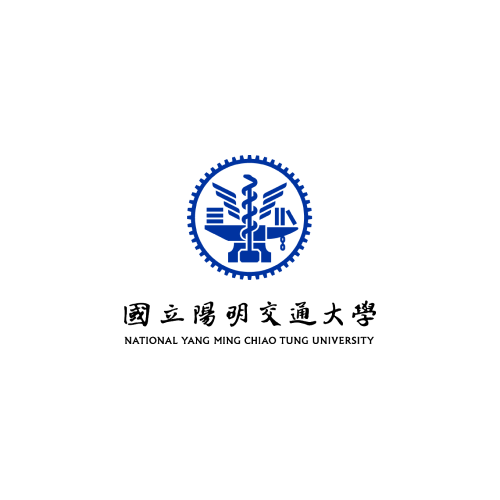
11:25 – 11:50
Networking Coffee & Tea Break
11:55 – 12:15
Fast-Tracking PiezoMEMS: From Concept to Manufacturing Readiness
This talk presents the recent advancements in piezoelectric MEMS (piezoMEMS) technology at the Institute of Microelectronics (IME), A*STAR, and highlights the strategy to accelerate the transition from innovative concepts to manufacturing-ready solutions.

Zhu Yao, Ph.D.
Institute of Microelectronics, A*STAR
Zhu Yao is Head of the MEMS Department at IME, A*STAR Singapore, focusing on MEMS for sensing, actuation, and wireless communication. She earned her Ph.D. from Nanyang Technological University in 2015. Zhu Yao is an active IEEE member, serving as associate editor for IEEE MEMS Journal and holding various committee roles. She received the SEMI MEMS & Sensors Industry Group Emerging Leaders Award in 2022.
Company Profile
Established in 1991, the Institute of Microelectronics (IME) is a research institute under Singapore’s Agency for Science, Technology and Research (A*STAR). In IME, we focus on delivering high impact research and development for the global semiconductor industry. IME’s role is to collaboratively develop and innovate next-generation technologies to enable a dynamic semiconductor ecosystem. Together with our highly skilled talent pool, we develop strategic capabilities and innovative technologies through state-of-the-art infrastructure. IME’s core research areas are in Advanced Packaging, piezoMEMS, SiC, mmWave GaN, and photonics & sensors. We will continue to shape the semiconductor industry’s roadmap for many years to come.


Joseph Jiang
xMEMS Labs
Joseph cofounded xMEMS Labs in 2018, pioneering the world’s first solid-state MEMS speakers and μCooling fan-on-a-chip. He previously served as VP of Software Product Management at Knowles, the global leader in MEMS microphones, and as EVP at Fortemedia, where he led the team to win noise suppression solutions at most of world’s leading smartphone makers. Earlier, Joseph was VP of Marketing & Business Development at InvenSense, where he helped secure major smartphone design wins at Samsung, Huawei, Xiaomi and was a key contributor to the company’s IPO in 2011.
Company Profile
Founded in January 2018, xMEMS Labs is the “X” factor in silicon MEMS with the world’s most innovative piezoMEMS platform. It began by delivering the world’s first solid-state True MEMS speakers for wireless earbuds and other personal audio devices. xMEMS’ “Sound from Ultrasound” technology delivers high-fidelity and full-bandwidth sound in a 1-mm thin package for earbuds, smart glasses, and smart watches.
xMEMS has evolved its ultrasonic piezoMEMS platform to also produce the world’s first μCooling fan-on-a-chip delivering critical active thermal management to smartphones, SSDs, XR and even isolated areas of datacenter rack servers underserved by conventional cooling technologies.
xMEMS has over 200 granted patents worldwide for its technology. For more information, visit https://xmems.com.
Company Products & Services

12:45 – 13:05
Challenges in Modeling and Simulation of MEMS
Faster MEMS Development: Reducing Tapeouts
MEMS development is time-consuming and costly. As mechanical structures—whether accelerometers, gyros, or micromirrors—become more complex, meeting specifications grows increasingly difficult. Process Design Kits (PDKs) are also more sophisticated, adding to the challenge. This presentation demonstrates how to significantly reduce the number of tapeouts needed to develop a production-ready sensor. Learn how advanced modeling and simulation can accelerate development, cut costs, and improve first-time-right success. Whether you’re designing next-generation inertial sensors or or revise existing designs, this talk provides practical methods to streamline your design process and shorten time-to-market.

Jan Mehner
i-ROM
Jan Mehner has been working in the field of design and simulation for MEMS for over 30 years. He spent many years as a MEMS consultant for NXP, Bosch, and other companies. Since 2007, he has been teaching Microsystems at the Technical University of Chemnitz in Germany. In 2015, he founded i-ROM, which develops simulation software specifically for the design of MEMS and provides consulting services.
Company Profile
We are a MEMS design house offering both MEMS design consulting and software specifically for MEMS design, the i-ROM MODELBUILDER.
If you have an idea for a MEMS sensor – we have the way to get there. Whether it’s micromirrors, angular rate sensors or gyroscopes. We help you with the design until your MEMS sensor meets the desired requirements. Our software covers the entire design process, from the idea for a sensor to the complete manufacturing-ready GDS interface. All process data kits (PDK) are also taken into account right from the beginning.
With our software you can shorten the expensive and lengthy design process from an average of 3 to up to 1.5 years. Time that is worth a tremendous amount of money.
i-ROM MODELBUILDER is the new generation of simulation software. It is suitable for both experienced engineers and beginners. Its graphical user interface and intuitive operation make it a must for every MEMS company. The i-ROM software toolbox has its own FEM core, electronics and GDS interfaces. Easy to use – easy to start.
Company Products & Services
MEMS Consulting Services and MEMS simulation software
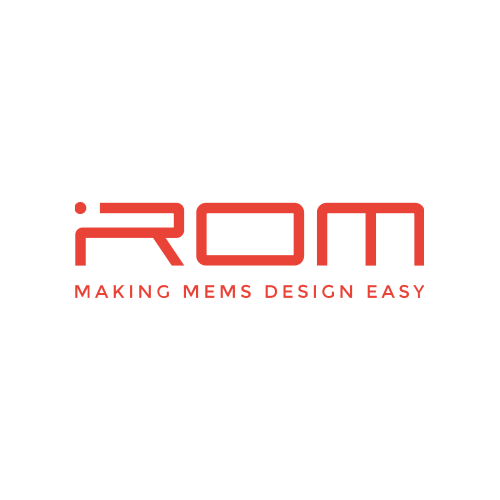
13:10 – 14:10
Networking Lunch
14:15 – 14:35
Silicon Photonic Optical Circuit Switch (OCS) for AI Networks
Optical circuit switching (OCS) is essential for resolving network bottlenecks in AI supercomputing, offering a high-speed, reconfigurable interconnect with ultra-low latency for data-intensive workloads. Current 3D free-space OCS systems used by hyperscalers are bulky and expensive. Fully integrated 2D OCS provides a path to drastically cut size, cost, and energy consumption while simultaneously boosting switching speed. This talk presents a novel, 2D silicon photonic OCS. We integrate micro-electro-mechanical system (MEMS) actuators with silicon photonics to physically move optical waveguides, a technique particularly effective for high-radix OCS designs.

Ming Wu, Ph.D.
UC Berkeley
Ming C. Wu is the Co-Founder and Chief Scientist of nEye.ai and the Nortel Distinguished Professor of Electrical Engineering and Computer Sciences at the University of California, Berkeley. He earned his B.S. from National Taiwan University and his Ph.D. from UC Berkeley in 1988.
Dr. Wu started his career at AT&T Bell Laboratories in Murray Hill, New Jersey, then moved to UCLA in 1993, and returned to his alma mater, UC Berkeley, in 2004. A serial entrepreneur, he co-founded two companies prior to nEye.ai: Berkeley Lights (Nasdaq: BLI) and Optical Micro-Machine (OMM).
Company Profile
A wellspring of innovation, the school occupies a 1,232-acre campus near downtown Berkeley. UC Berkeley, also known as Cal, was established in 1868 as the flagship of today’s 10-campus University of California.

14:40 – 15:00
Commercialization of MEMS-based ultrasonics
Over the last 10 years, my group has developed and commercialized PMUT-based systems for consumer electronics applications, starting with air-coupled PMUTs used for time-of-flight (ToF) range-finding and human presence sensing. These ToF sensors were commercialized by my startup, Chirp Microsystems (now part of TDK), and are used in many products such as smart-locks, robot vacuum cleaners, and laptops. We subsequently developed an ultrasonic fingerprint sensor based on the monolithic integration of PMUTs with CMOS that is used for biometric authentication.

David Horsley, Ph.D.
Northeastern University
David Horsley is a Professor of Electrical and Computer Engineering at Northeastern University, where he is co-director of the Institute for NanoSystems Innovation (NanoSI). Dr. Horsley co-founded several deep-tech companies, most recently Chirp Microsystems (now part of TDK InvenSense), a manufacturer of MEMS-based ultrasonic sensors. Dr. Horsley is an IEEE Fellow, a Fellow of the National Academy of Inventors, is a recipient of the National Science Foundation’s CAREER Award, the UC Davis Outstanding Junior Faculty Award, the 2016 NSF I/UCRC Association’s Schwarzkopf Award for Technological Innovation, the 2018 East Bay Innovation Award, and Northeastern University’s 2024 Global Network Accelerator Award.
Company Profile
Founded in 1898, Northeastern is a global research university with a distinctive, experience-driven approach to education and discovery. The university is a leader in experiential learning, powered by the world’s most far-reaching cooperative education program. We integrate classroom study with opportunities for professional work, research, service, and global learning in more than 100 countries. The same spirit of collaboration guides a use-inspired research enterprise focused on solving global challenges in health, security, and sustainability. Northeastern offers a comprehensive array of undergraduate and graduate programs leading to degrees through the doctorate in nine colleges and schools, and select graduate programs at campuses in Boston, Charlotte, N.C., San Francisco Bay Area, Seattle, and Toronto. Campuses in Burlington, MA, and Nahant, MA, are home to research institutes for homeland security and coastal sustainability, respectively.
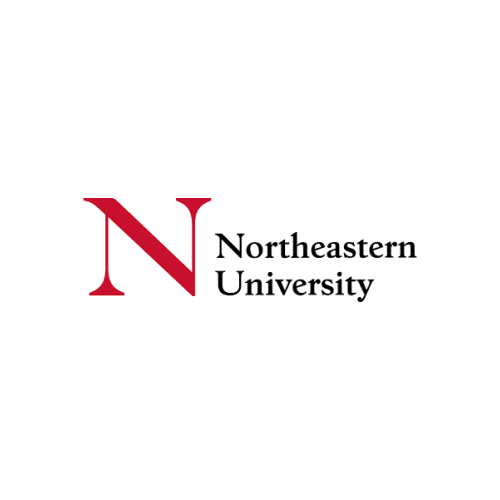
15:05 – 15:25
Intelligent Gas Sensing at Scale: From Electrified Mobility to Smart Energy
Gas sensing is emerging as a cornerstone for safety and intelligence in next-generation mobility and energy systems. However, today’s solutions remain critically limited in performance, scalability, and reliability for applications such as EV battery prognostics and smart energy networks. Serinus Labs addresses this gap with ultra-low power, application-specific sensors designed for mass manufacturability — enabling safer battery systems, smarter energy networks, and frontier energy exploration.

Hossain Fahad, Ph.D.
Serinus Labs
Dr. Hossain Fahad is the founding CEO of Serinus Labs, a UC Berkeley spinout developing ultra-low power gas sensing technologies for emerging applications in mobility and energy. He previously conducted postdoctoral research at the Berkeley Sensor & Actuator Center (BSAC), where he co-invented the company’s core sensor architecture. He holds a Ph.D. in Electrical Engineering from KAUST, Saudi Arabia, and is a Senior Member of the IEEE. His expertise spans sensors, semiconductor device physics, and advanced manufacturing technologies. Dr. Fahad has served as Principal Investigator on multiple federal awards from ARPA-E, NSF, and NASA, totaling more than $4M in R&D funding.
Company Profile
Serinus Labs, Inc. is a fabless semiconductor sensor company developing ultra-low-power, high-sensitivity gas sensors for performance- and safety-critical applications across mobility, energy, and industrial infrastructure. Spinning out of UC Berkeley’s Berkeley Sensor & Actuator Center (BSAC), Serinus leverages proprietary CMOS technology to achieve ppb-level detection of hydrogen, hydrogen sulfide, ammonia, mercaptans, and other trace gases—with high selectivity, rapid response, and long-term stability.
Serinus Labs is actively scaling its technology through leading CMOS and MEMS foundries, targeting applications such as thermal runaway mitigation in EV battery packs, hydrogen infrastructure leak detection and localization, and smart gas grid monitoring.
Backed by the U.S. National Science Foundation and ARPA-E, Serinus Labs embodies the convergence of advanced semiconductor manufacturing with the sensing demands of electrified, decentralized, and decarbonized energy systems.
Company Products & Services
Serinus Labs offers ultra-low-power, high-sensitivity gas sensing solutions built on proprietary CMOS sensor technology. Engineered for performance- and safety-critical environments, Serinus sensors enable ppb-level detection of hydrogen, hydrogen sulfide, ammonia, and odorants such as mercaptans—with high selectivity, rapid response, and robust long-term stability.
Serinus’ modular sensor platform is available in multiple configurations, including evaluation boards and system-level prototypes, enabling rapid assessment for integration into customer environments. Target applications include EV battery pack safety, hydrogen infrastructure monitoring, and smart gas grid deployments.
Serinus Labs works with automotive OEMs, energy utilities, and industrial stakeholders to deliver next-generation sensing solutions that address critically unmet performance, lifetime, and packaging requirements across diverse operating conditions.
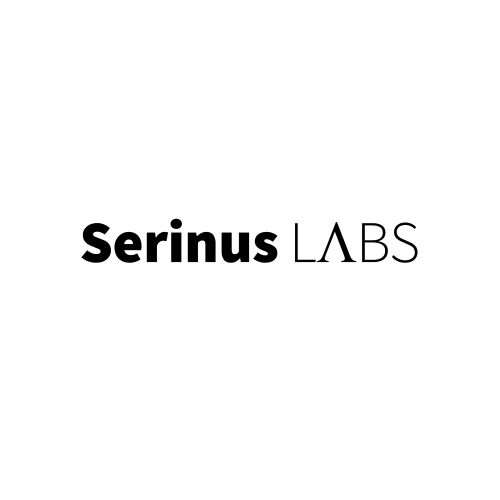
15:30 – 15:50
Unprecedented Cost Effective Thermal Imaging Sensor fabricated solely in CMOS Fab for AI Applications
As AI technology accelerates, the demand for low-cost, mass-producible thermal imagers is growing—driven by the need for high-quality data to train AI models and enable intelligent applications across industries such as smart appliances, automotive, IoT, healthcare, and security. Meridian Innovation’s SenXor™ platform addresses this need with thermal imaging sensors built on a scalable, hybrid silicon CMOS structure. This design supports compact, cost-effective manufacturing and is backed by a robust and efficient supply chain.

Piotr Kropelnicki, Ph.D.
Meridian Innovation
Dr. Piotr Kropelnicki is the Vice President of Engineering and Co-Founder of Meridian Innovation, a dynamic company focused on developing next-generation sensing technologies for the consumer market. He leads a global engineering team of over 20 specialists, with expertise in high-volume production and monolithic integration of MEMS-based sensing elements. Their work spans analog, mixed-signal, and digital circuit design within CMOS environments.
Company Profile
Meridian Innovation is dedicated to making thermal imaging technology accessible for mass-market applications. Leveraging advanced CMOS technology, we design and manufacture high-performance, low-power, and cost-effective thermal imaging sensors. Our products are widely applied in consumer electronics, healthcare, industrial safety, smart building, and automotive sectors.
In addition, Meridian Innovation supports OEMs, ODMs, and system integrators in developing smarter, safer, and more energy-efficient solutions. By combining innovation with scalable production, we enable customers to integrate thermal vision into everyday products and redefining how people sense and interact with their environment.
Company Products & Services
Meridian Innovation’s Panther and Cougar thermal imaging sensors are designed to bring powerful thermal vision to high-volume applications at an affordable cost. Built on advanced CMOS technology, both product lines deliver compact, low-power, and high-performance thermal imaging solutions suitable for integration into consumer, healthcare, industrial, and safety devices.
The Panther series offers advanced imaging capabilities with higher resolution options, ideal for applications requiring precise thermal measurement and detailed visualization. The Cougar series provides cost-efficient thermal sensing in a smaller footprint, optimized for mainstream products. Together, they enable OEMs and system integrators to create smarter, safer, and more innovative solutions.

15:55 – 16:15
Seeing the invisible: real-time chemistry revealed in your wet bench with next generation semiconductor infrared spectroscopy
In semiconductor manufacturing, every detail matters, even a small process drift can mean costly waste or lost yield. Inline chemical monitoring is essential for those who want to push precision further and minimize risk.Paeonia has developed the Novel Mid-IR Spectrometer to provide rapid, real-time chemical analysis (900–3,500 cm⁻¹, ~0.3 s response, ~5 × 5.5 × 6 cm) directly in your process stream.Our talk will show how with new innovative technology, we can improve on key wet-process steps—etching (device dimensions), cleaning (contamination), and electroplating (voids).

Lennon Lee, Ph.D.
Paeonia Innovations
Dr. Lennon Lee, CEO of Paeonia Innovations, is a recognized leader in photonics and sensor technologies. With a PhD from Stanford University, he has built an exceptional career in advancing photonics and chemical sensors. Prior to founding Paeonia Innovations, he held prominent leadership roles at the Institute of Microelectronics, Singapore, where he led pioneering research in photonics and sensor systems. Under his guidance, Paeonia Innovations has developed cutting-edge solutions for the petrochemical industry and forged strong global partnerships. A serial entrepreneur and thought leader, Dr. Lennon Lee is dedicated to advancing photonics while mentoring the next generation of innovators.
Company Profile
Paeonia Innovations Pte Ltd, founded in April 2023, is a distinguished spin-off from ASTAR’s Innovation & Enterprise (I&E) division. Led by CEO Dr. Lennon Lee, former Head of Department at ASTAR’s Institute of Microelectronics, the company is dedicated to advancing measurement and analytical technologies that drive smarter, more sustainable industries. Paeonia specializes in state-of-the-art chemical sensing solutions designed for diverse applications in chemicals, pharmaceuticals, petrochemicals, food processing, and specialty chemicals. Operating with a focused team of 10, including experienced consultants, the company is rapidly expanding to support its growing portfolio of products and customer engagements. Strengthening its collaborative edge, Paeonia Innovation is an active member of CPACT (Community of Practice in Process Analytics & Control Technologies) and PIPS (Pharma Innovation Programme Singapore), underscoring its commitment to global innovation networks and industry partnerships. As an ambitious new entrant, Paeonia Innovations is positioning itself as a dynamic force in industrial and laboratory spectroscopic solutions.
Company Products & Services
Paeonia Innovations offers advanced solutions in chemical sensing, centred on its groundbreaking palm-sized Mid-Infrared (Mid-IR) spectrometer. This compact yet powerful device enables real-time chemical composition analysis across industries such as pharmaceuticals, specialty chemicals, petrochemicals, and food manufacturing. Designed for durability and precision, the spectrometer operates without moving parts or fragile fibres, making it robust for inline monitoring under diverse industrial conditions. With its rapid spectral acquisition and broad measurement range, it delivers accurate insights essential for optimizing processes, reducing waste, and ensuring consistent product quality. Complementing the hardware, Paeonia provides proprietary chemometrics algorithms that overcome complex matrix effects and deliver reliable data analytics for reaction kinetics, process control, and sustainability goals. By uniting cutting-edge hardware with intelligent data science, Paeonia Innovations is establishing itself as a dynamic new force in applied spectroscopy, redefining how industries approach process monitoring and chemical analysis.
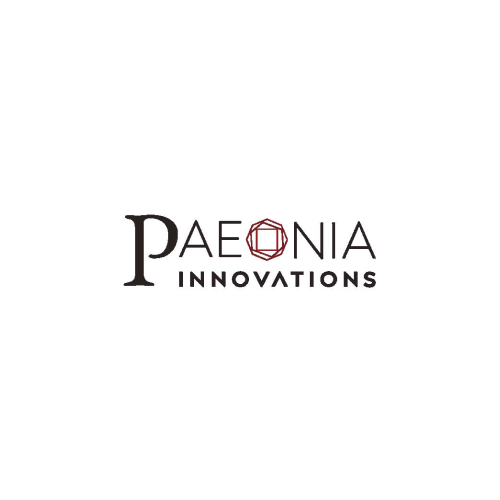
16:20 – 16:40
Zepsor: Sensing Without Power — Enabling the Next Wave of Human–Machine Interfaces
Edge AI is only as useful as its ability to know when a human is there. Zepsor’s zero-power infrared MEMS sensors provide that missing link by operating in an off-but-alert state—harvesting ambient IR to mechanically trigger a microswitch and wake systems only on a target event. This event-driven architecture eliminates standby drain and enables truly always-ready human–machine interfaces across wearables and smart glasses, AR/VR, smart buildings, automotive cabins, healthcare/public touchless systems, and security.
In this talk, I’ll unpack what zero-power sensing means for scaling edge AI sustainably and show how our patented device physics translates into instant presence/gesture detection with near-zero standby power. I’ll also preview customer traction and the multi-segment market opportunity for low-power HMIs, and detail our lab-to-fab transition—including initial prototypes from a commercial foundry featuring wafer-level vacuum-sealed devices. To close, I’ll present a video demonstration of instant detection in action and discuss how “off-but-alert” sensing unlocks responsive, human-centric AI at massive scale.

Matteo Rinaldi
Zepsor Technologies
Matteo Rinaldi is an inventor-CEO and deep-tech entrepreneur building the zero-power sensing layer for the AI era. He is co-founder & CEO of Zepsor Technologies, bringing event-driven infrared MEMS sensors to market to enable always-ready human–machine interfaces across smart homes, wearables/AR-VR, automotive, healthcare, and security. Matteo also serves as a Professor at Northeastern University, where he directs the Institute for NanoSystems Innovation (NanoSI) and the Kostas Nanotechnology Laboratory (NU Cleanroom)—platforms he’s leveraged to lead $40M+ in research programs, co-author 250+ publications, and secure 18 patents (10+ pending). His work has earned global recognition, including Optica Fellow, the IEEE IFCS Cady Award (2025), DARPA Young Faculty Award, NSF CAREER, IEEE Sensors Council Early Career Award, and multiple best-paper prizes.
Company Profile
Problem
Existing motion and proximity sensors constantly drain battery power or require wired connections, limiting form factors and usability. In wearables, smart glasses, and many IoT devices, power budgets are so tight that continuous sensing is impractical—forcing users to rely on clunky buttons, voice activation, or periodic charging.
Solution
Zepsor’s zero power IR technology provides an instant on, battery free trigger for detecting human presence, gestures, or occupancy. The sensor converts a minute amount of captured thermal energy into mechanical motion, closing a microswitch that wakes up or activates a device. This hardware level efficiency unlocks multiple applications:
Company Products & Services
Zepsor delivers zero-power infrared MEMS sensors that operate in an “off-but-alert” state, harvesting thermal energy to provide instant presence/gesture triggers with virtually no standby drain. Our event-driven sensing platform ships as miniature surface-mount modules and application-specific assemblies that OEMs can drop into wearables and smart glasses, AR/VR headsets, smart home devices, building/industrial controls, automotive cabins, healthcare/hygiene products, and security systems.
Products: ZIR-series presence/gesture modules (ultra-low idle power, fast response, lens-less compact form factor); evaluation kits and reference designs for rapid integration; roadmap variants including multi-spectral IR for flame detection and other safety/industrial uses.
Services: Custom sensor and packaging engineering (NRE), application tuning and performance validation, reliability/qualification support, and manufacturing transfer through commercial foundry partners.
By eliminating wasted standby power while remaining instantly responsive, Zepsor enables always-ready human–machine interfaces, longer battery life, smaller form factors, and more sustainable edge-AI deployments across consumer, commercial, and defense markets.
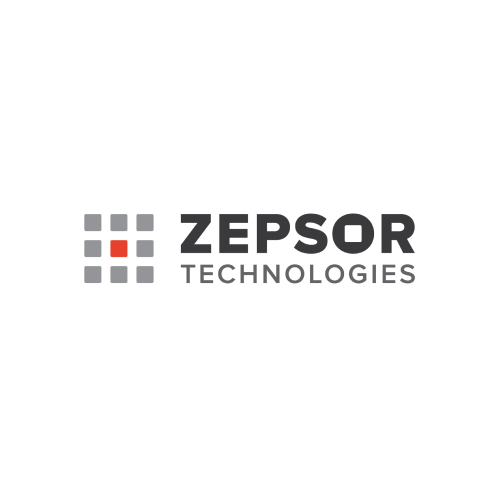
16:45 – 17:15
Networking Coffee Break
17:20 – 17:40
Project-based Talent Development for MEMS Industry – a case study
In this talk, we present the R&D projects, emploment placement, and scientific publication outcomes of MEMS talent development under a joint scheme amongst Melon Tech, Shanghai University and the National Innovation Center par Excellence. With this joint scheme, graduate students from Shanghai University engage in industrial R&D projects identified by Melon Tech, a Hi-Tech MEMS startup company, with partial Scholarship earmarked to.encourage project-based learning. The results suggest that the scheme is much welcome by the students, the collaboration industrial partner, as well as the broad MEMS industry in China.
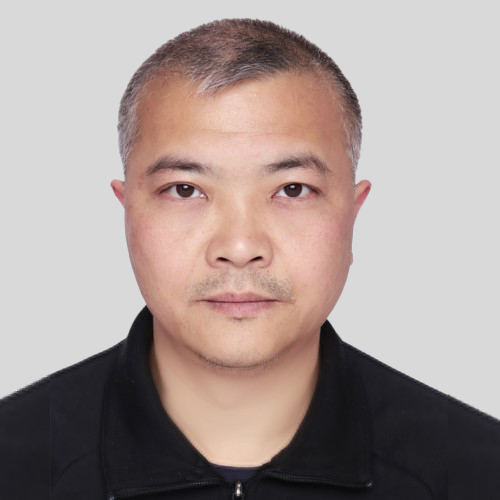
Yuandong Gu, Ph.D.
National Innovation Center par Excellence
Prof. Alex Gu is a Vice President of the National Innovation Center par Excellence (NICE) . Prior to his current post, Prof. Gu was the founding Dean of the School of Microelectronics at Shanghai University, the Deputy Executive Director of the Institute of Microelectronics (IME) Singapore, and a Principal Scientist at Honeywell International, Inc. (Minnesota, USA). Prof. Gu brings 20+ years of experience in R&D, Education, Management and Commercialization. Prof. Gu’s research interest is in the field of MicroElectroMechanical Systems (MEMS), primarily in Aluminum Nitride (AlN)-based functional thin films and related MEMS sensors. Prof. Gu is a class 1998 PhD alumni of the University of Minnesota.
Company Profile
The National Innovation Center par Excellence (NICE) is a comprehensive innovation center approved by the Ministry of Science & Technology of PRC, jointly built by Shanghai municipality and Jiangsu, Zhejiang, Anhui provinces. Shanghai Yangtze Delta Innovation Institute is the headquarter of NICE.
NICE is driven to be responsive to technical demands from industry, thereby bridging the “valley of funding death” that lies between applied research and commercialization.As a top non-profit, application-oriented research organization and a high-tech investor in China, NICE advances the utilisation and commercialisation of technology research and scientific results in commerce and society.
NICE brings together universities, business, talents, science and technology to build a global innovation network and ecosystem to support the sustainable development of the Yangtze Delta industry.
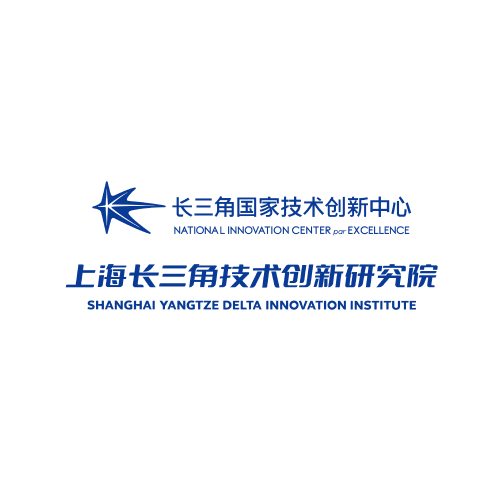
17:45 – 18:05
Beyond Moore’s Law: Sustainable Semiconductor Investments in the AI Era
As the semiconductor industry moves beyond the focus of traditional Moore’s Law scaling, there is a growing recognition of the critical need for innovations that can harmonize rapid expansion with long-term sustainability. The urgency of this transformation has intensified due to the surge in AI-driven development, as the resulting demand for computational power is placing tremendous strain on power grids and raising environmental concerns. In response, corporations and VCs are directing investments into emerging materials, novel devices, and advanced manufacturing technologies, which promise to minimize energy consumption and carbon footprint, while supporting the rapid proliferation of AI data centers and more.

Michelle Kiang, Ph.D.
MTM Venture Partners
Michelle Kiang is the Founding Managing Partner of MTM Venture Partners, investing in early-stage deep tech companies tackling the toughest sustainability challenges and creating broad societal impact. Previously, Michelle co-founded Impact Science Ventures and served as Managing Partner. A technologist turned entrepreneur, Michelle founded and led three hard tech startups to successful exits. After her last company’s acquisition by TDK, she became VP and General Manager of TDK’s ultrasound business unit. She also led strategic planning, M&A, and investment at Micron Technology and NeoPhotonics (now Lumentum). Michelle is a Board Director of ITRI International, and advises various startups and deep tech incubation programs. She holds M.S. and Ph.D. degrees in Electrical Engineering from UC Berkeley and received the Campanile Excellence in Achievement Award from UC Berkeley in 2025. She earned her B.S. degree in Electrical Engineering from National Taiwan University.
Company Profile
MTM Venture Partners is a venture capital firm backing early-stage startups developing transformative innovations at the intersection of hard tech and sustainability. We invest in high-impact sectors including semiconductors, quantum technologies, green energy, and advanced materials. Established by an experienced entrepreneur and industry executive with a proven track record of building and scaling hard tech companies from inception to successful exits, we bring operational expertise, market insight, and strategic vision to every investment, actively working alongside founders to accelerate growth, navigate complex business challenges, and capture global market opportunities. At MTM, we empower entrepreneurs to turn bold ideas into world-changing realities.

18:10 – 18:25
Closing Remarks
18:30 – 21:00
Dinner Offsite
Venue: Pietrasanta Ristorante
End of content
End of content